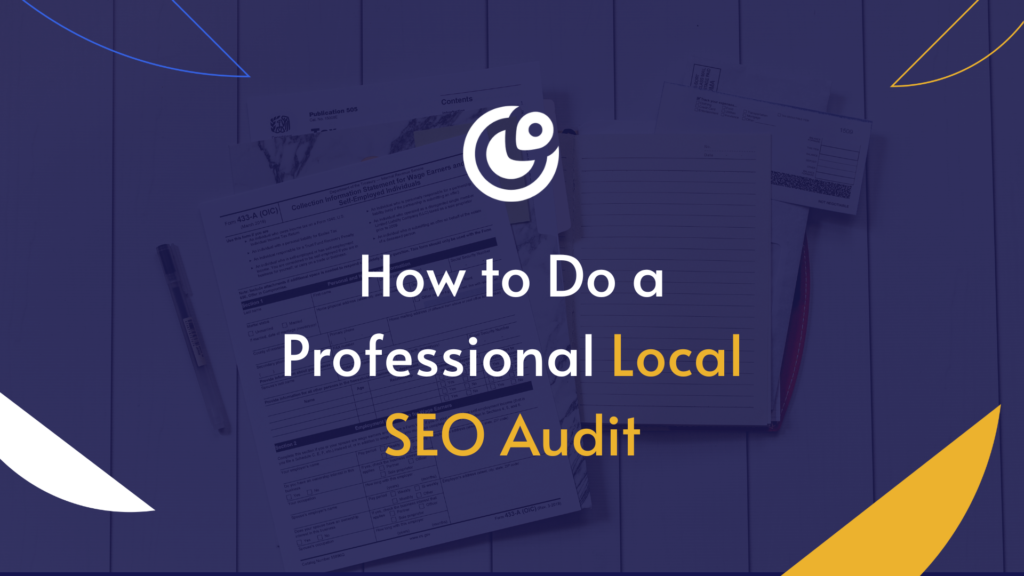Local SEO is crucial for businesses looking to attract customers in their area. Conducting a local SEO audit is an essential step to ensure your online presence is optimized for local searches. In this guide, we will walk you through the process of conducting a comprehensive local SEO audit to help your business rank higher in local search results.
1. Start with Google My Business
Google My Business (GMB) is a powerful tool for local SEO. Start your audit by ensuring that your GMB listing is complete and up to date. Verify the accuracy of your business name, address, and phone number (NAP), and check that your business hours and website URL are correct. Having accurate and consistent information across all online platforms is crucial for local SEO.
2. Analyze Local Keywords
Keywords are the foundation of SEO. Conduct keyword research specific to your local area to identify the terms that potential customers are using to find businesses like yours. Use tools like Google Keyword Planner or SEMrush to discover relevant local keywords and incorporate them into your website content, meta tags, and GMB profile.
3. Check On-Page Optimization
Review the on-page elements of your website, including title tags, meta descriptions, and headers. Ensure that they include local keywords and accurately represent your business. Optimize your website content for local search intent, and make sure that your NAP information is prominently displayed on every page of your website.

4. Local Citations and Backlinks
Check your business’s local citations to ensure that your NAP information is consistent across all platforms, such as online directories, review sites, and social media profiles. Additionally, build quality backlinks from local sources to improve your website’s authority in local search results.
5. Mobile-Friendly and User Experience
With the majority of local searches being conducted on mobile devices, it’s crucial to ensure that your website is mobile-friendly and offers a seamless user experience. Test your website’s load speed, navigation, and overall responsiveness on different devices to ensure a positive experience for your local visitors.
6. Local Reviews and Reputation Management
Online reviews play a significant role in local SEO. Monitor and manage your business’s online reputation by acquiring positive reviews from satisfied customers. Address any negative feedback promptly and professionally, demonstrating your commitment to customer satisfaction and maintaining a positive online reputation.
7. Analyze Local Competition
Conduct a competitive analysis of other businesses in your area that are ranking well in local search results. Identify their strengths and weaknesses in their local SEO strategies. This analysis can provide valuable insights into areas where you can improve and outrank your local competition.
8. Local Schema Markup
Implementing local schema markup on your website can provide search engines with additional context about your business, such as your address, phone number, and business hours. This structured data can enhance your visibility in local search results and improve the likelihood of appearing in rich snippets.

9. Track and Measure Results
After implementing changes based on your local SEO audit, it’s crucial to track and measure the results. Monitor your local search rankings, website traffic, and customer interactions to assess the impact of your local SEO efforts. Adjust your strategy based on your findings to continuously improve your local SEO performance.
10. Summary
Conducting a local SEO audit is essential for businesses aiming to dominate local search results. By optimizing your online presence for local searches, you can attract more local customers and gain a competitive edge in your area. Follow the steps outlined in this guide to conduct a comprehensive local SEO audit and propel your business to success in local search rankings.
Frequently Asked Questions Of How To Conduct A Local Seo Audit: The Ultimate Guide For Boosting Your Online Visibility
How Can I Conduct A Local Seo Audit?
To conduct a local SEO audit, start by analyzing your website’s on-page SEO elements such as title tags, meta descriptions, and keywords. Next, evaluate your website’s backlink profile and assess the quality and relevance of the links. Additionally, perform a thorough analysis of your Google My Business listing, ensuring that all information is accurate and up to date.
Finally, assess your online reviews and ratings, and implement strategies to improve your local SEO efforts.
Why Is A Local Seo Audit Important?
Conducting a local SEO audit is crucial for businesses looking to optimize their online presence and increase visibility in local search results. It helps identify areas of improvement by assessing various factors such as website performance, local listings accuracy, backlink quality, and online reputation.
By performing a local SEO audit, businesses can uncover issues that may hinder their online visibility and implement strategies to boost their local search rankings, ultimately driving more targeted traffic to their website.
What Tools Can I Use To Conduct A Local Seo Audit?
There are several tools available for conducting a local SEO audit. Some popular options include Google Analytics for analyzing website traffic and user behavior, Google Search Console for monitoring website performance and identifying errors, Moz Local for managing local listings accuracy, SEMrush for evaluating competitors and conducting keyword research, and BrightLocal for analyzing Google My Business performance and managing online reputation.
How Often Should I Conduct A Local Seo Audit?
It is recommended to conduct a local SEO audit at least once every quarter to ensure that your website and online presence are optimized for local search. However, the frequency may vary depending on factors such as the size of your business, industry competitiveness, and changes in search engine algorithms.
Regular audits allow you to identify any potential issues or opportunities for improvement, making adjustments to stay ahead of your competition and maintain a strong local search presence.

